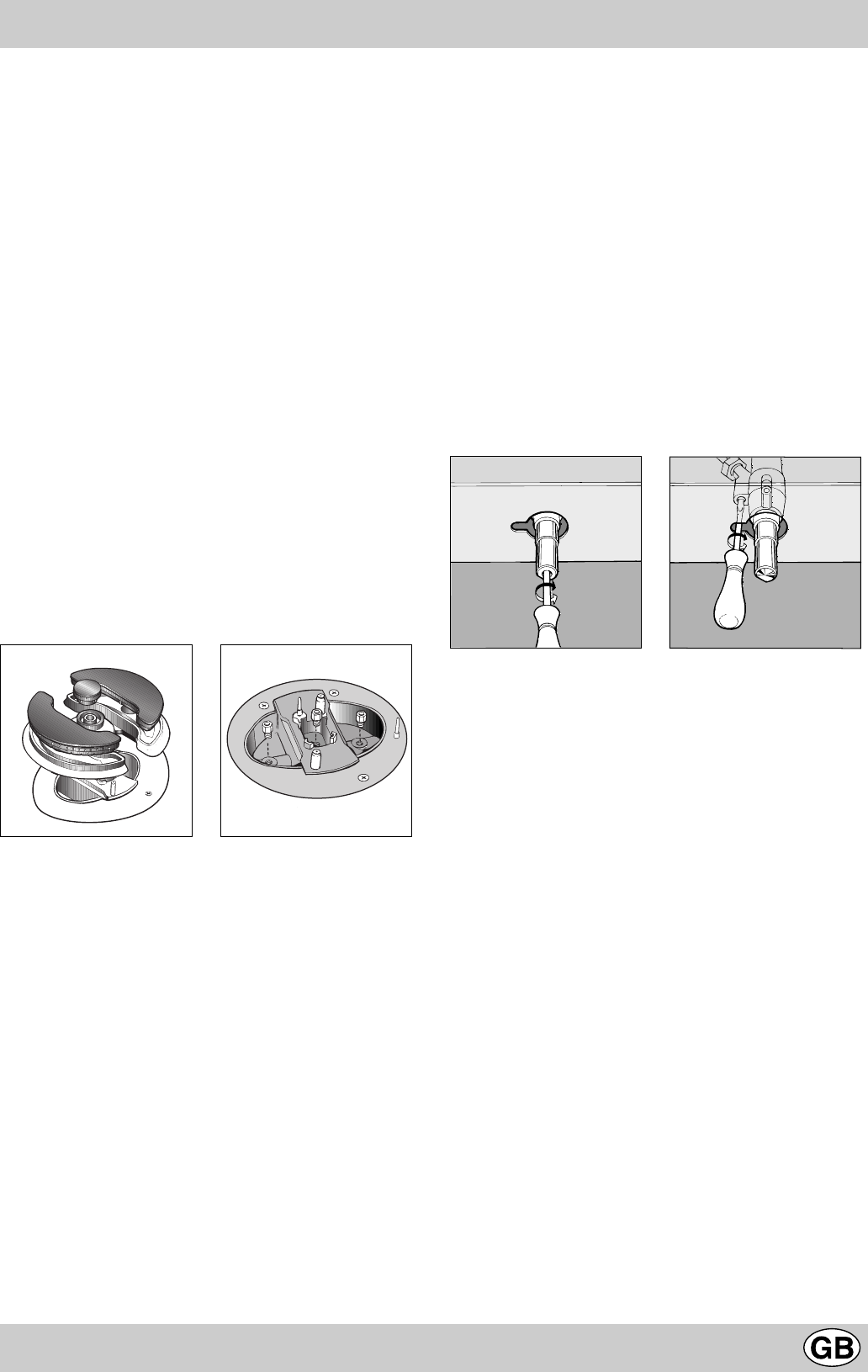
11
Adapting the Hob for Different Types of Gas
To adapt the hob to a different type of gas than that for which it
was designed, (see the sticker under the hob or on the packaging),
the burner nozzles must be changed, as follows:
• Remove the pan supports and slide the burners out of the
cooktop.
• Unscrew the nozzles using a 7mm socket wrench and
replace them with those for the new type of gas. (See table 1,
“Burner and Nozzle Specifications”).
• Reassemble the parts following the instructions in reverse order.
• On completing the operation, replace the old rating label with
the one showing the new type of gas; the sticker is available
from Hotpoint Service (see KEY CONTACTS, back page).
If the gas pressure is different than that prescribed, a pressure
regulator must be installed at the source, in compliance with
national standards governing the use of piped gas regulators.
Replacing the nozzles on separate “double flame “
burners:
• remove the grids and slide the burners from their
housings. The burner consists of 2 separate parts (Fig.
C and fig. D);
• unscrew the burers with a 7 mm wrench spanner. The
internal burner has a nozzle, the external burner has
two (of the same size). Replace the nozzle with models
suited to the new type of gas (see table 1).
• replace all the components by repeating the steps in
reverse order.
Fig. C Fig. D
Regulation of Air Supply to the Burner
The burners do not need a primary air regulator.
Minimum Regulation
• Turn the gas valve to minimum.
• Remove the knob and turn the regulator screw (positioned
either on the side of the top or inside the shaft) clockwise
until the flame becomes small but regular.
N.B.: In the case of liquid gas, the regulation screw must be fully
screwed in (clockwise).
• Make sure that, when the knob is turned rapidly high to low,
the flame does not go out.
• In the event of a malfunction on appliances with the security
device (thermocouple) when the gas supply is set at
minimum, increase the minimum supply levels using the
regulator screw.
Once the adjustment has been made, apply sealing wax, or a
suitable substitute, to the old seals on the by-pass.
Installation


















